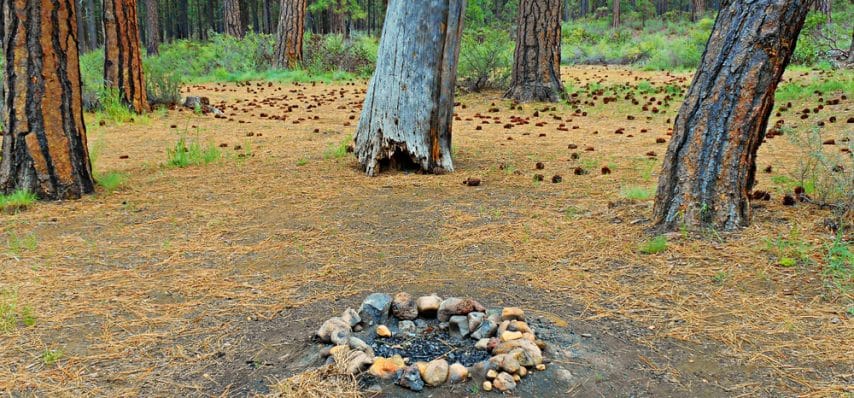Primitive Camping in a Nutshell: The Whys, Whats, and Hows
Camping can be a relaxing pastime and a much cheaper way to see the world. However, with many state and national park campgrounds becoming overcrowded, more and more campers are turning to primitive camping. Primitive camping doesn’t necessarily mean hiking five miles out to the middle of nowhere and spending the night under the stars in nothing but a sleeping bag. That’s a whole other post. Primitive camping is a happy medium between staying at a modern campground, with showers, electricity, and such, and backpacking, where you carry all of your gear with you and spend the night in the woods.
Why Go Primitive Camping?
So, what are some pros and cons of primitive camping?
Pros
• Fewer people
• Less noise
• Less trash laying around
• Cheaper
• Usually still relatively close to modern campgrounds (That could be considered a con instead, depending on your perspective and personality.)
Cons
• No showers
• No electricity
If you can’t live without modern comforts like running water and electricity, primitive camping may not be for you. On the other hand, if you don’t mind getting a little grimy, cooking your meals over a campfire, and enjoying your nights in quiet solitude, primitive camping may be just the outdoor excursion you’ve been looking for.
Before You Head Out…
So, you’ve got your mind set on a primitive camping trip. There’s only one problem: What do you need? Well, that’s kind of a trick question. What one person deems essential, another may consider superfluous. With that being said, take the following lists with a grain of salt.
Necessary:
• Tent or camping hammock
• Tent stakes (if not included with your tent)
• Sleeping bag
• Water bottles and/or containers (drinking water spigots are often available in primitive camps, but be sure to check in advance)
• Matches or a lighter
• Food and snacks
• Flashlight, headlamp, and/or lantern
• Clothes, socks, and underwear (Don’t forget at least one set of extra clothes because you never know what shenanigans may ensue during the day, especially with the weather.)
• Tarp (to go under your tent if there is a chance of rain)
• Knife
Extras That Make Life Easier:
• Roasting stick (for hot dogs and such)
• A book, music, or whatever you enjoy doing in your downtime
• Fuel tablets (or something similar that helps get a fire going quickly). Other than getting drenched in the rain, there is nothing worse than not being able to get a fire going
• Sleeping pad
• Small broom
• Paracord (comes in handy as a clothesline)
• Battery-powered fan
• Zip ties (aka raccoon proofing)
Miscellaneous Tips
• Be sure to research the campground/park you are planning to visit in advance. Especially be sure to check out a map of the campground if you’re able. Where is the closest water source? How close is the nearest outhouse to the site you want? Some campground websites even give information on the dimensions of the site, driveway grade, and even pictures of each site. Be sure to utilize this information.
• Make a list of items you need/want to take. Check them off as you pack. Keep this list and tweak it for future trips.
• PRACTICE SETTING UP YOUR TENT BEFORE YOUR TRIP. This is especially important if you are going alone.
• Looking for even more solitude? Go camping during the week and/or in the off-season, if you’re able. Plus, many places have lower rates during these times.
Don’t Forget: Have Fun!
Hopefully, you are more excited to give primitive camping a try now than you were at the beginning of this article. It is a lot quieter, more enjoyable, and more relaxing than staying at a modern campground. Even if you do end up with a few neighbors, they are likely to be pretty chill, too, since, after all, they are seeking the same experience you are.



